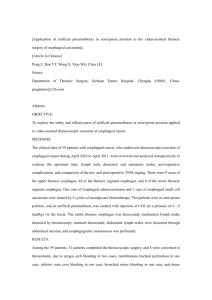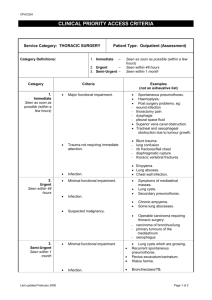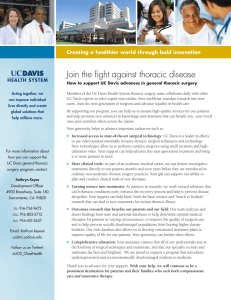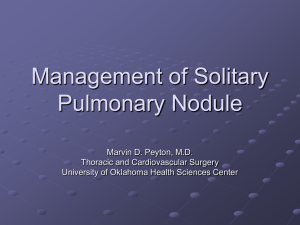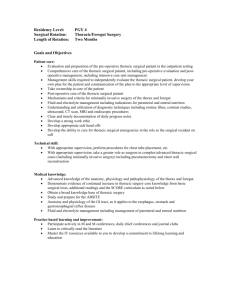File
advertisement
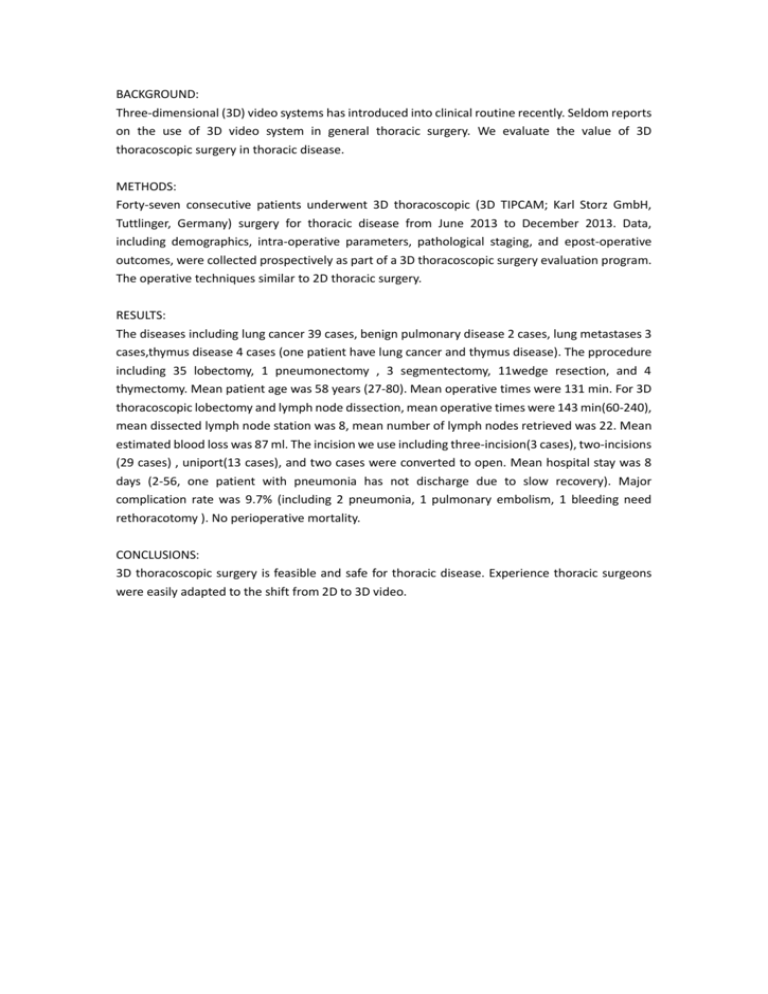
BACKGROUND: Three-dimensional (3D) video systems has introduced into clinical routine recently. Seldom reports on the use of 3D video system in general thoracic surgery. We evaluate the value of 3D thoracoscopic surgery in thoracic disease. METHODS: Forty-seven consecutive patients underwent 3D thoracoscopic (3D TIPCAM; Karl Storz GmbH, Tuttlinger, Germany) surgery for thoracic disease from June 2013 to December 2013. Data, including demographics, intra-operative parameters, pathological staging, and epost-operative outcomes, were collected prospectively as part of a 3D thoracoscopic surgery evaluation program. The operative techniques similar to 2D thoracic surgery. RESULTS: The diseases including lung cancer 39 cases, benign pulmonary disease 2 cases, lung metastases 3 cases,thymus disease 4 cases (one patient have lung cancer and thymus disease). The pprocedure including 35 lobectomy, 1 pneumonectomy , 3 segmentectomy, 11wedge resection, and 4 thymectomy. Mean patient age was 58 years (27-80). Mean operative times were 131 min. For 3D thoracoscopic lobectomy and lymph node dissection, mean operative times were 143 min(60-240), mean dissected lymph node station was 8, mean number of lymph nodes retrieved was 22. Mean estimated blood loss was 87 ml. The incision we use including three-incision(3 cases), two-incisions (29 cases) , uniport(13 cases), and two cases were converted to open. Mean hospital stay was 8 days (2-56, one patient with pneumonia has not discharge due to slow recovery). Major complication rate was 9.7% (including 2 pneumonia, 1 pulmonary embolism, 1 bleeding need rethoracotomy ). No perioperative mortality. CONCLUSIONS: 3D thoracoscopic surgery is feasible and safe for thoracic disease. Experience thoracic surgeons were easily adapted to the shift from 2D to 3D video.
